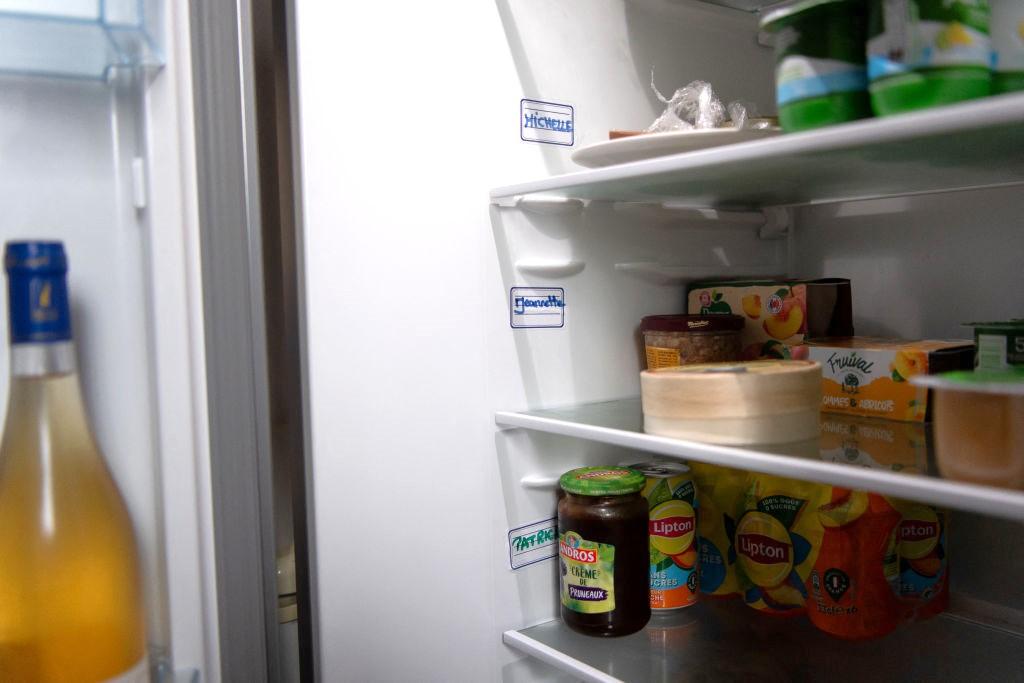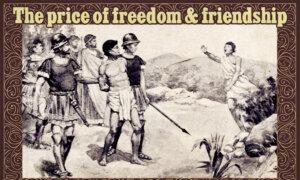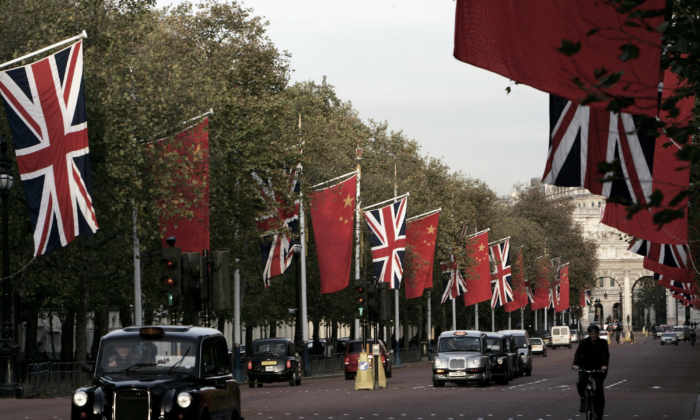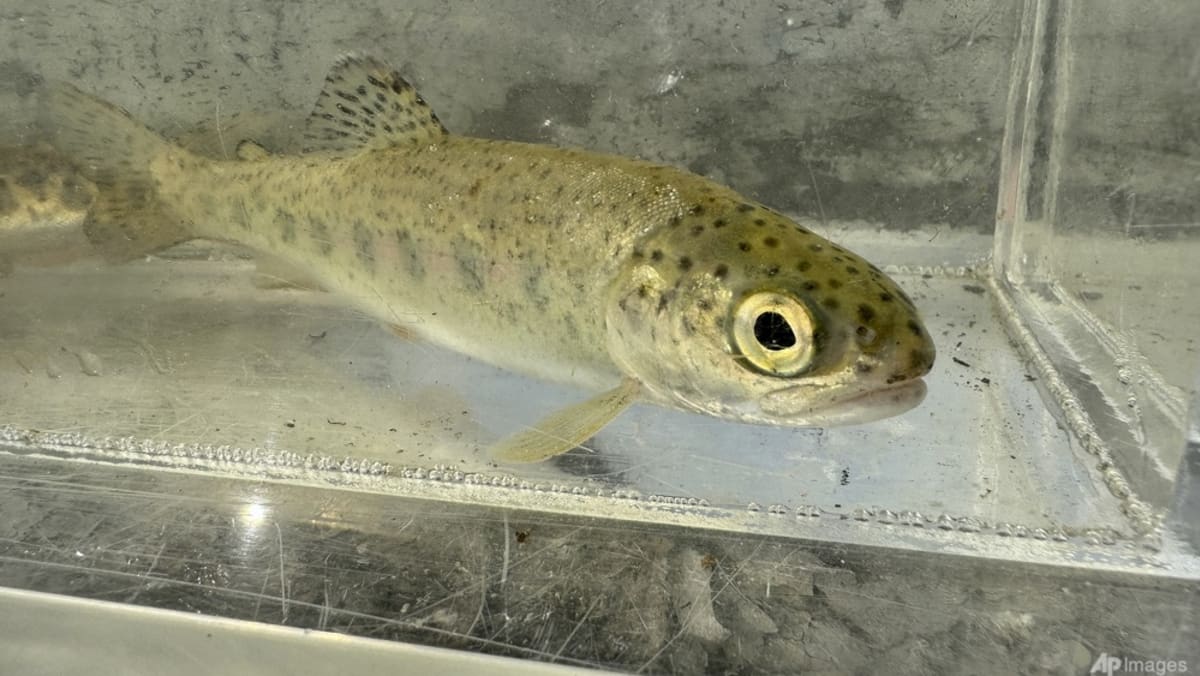‘It would not be a laughing matter if you were charged with any of these offences and it went to court,’ a spokesperson for Slater and Gordon lawyers said.
Did you know that doing any business or trade with pirates in the state of Victoria can land you in jail for up to 10 years?
How about this one?
Obstructing or disturbing a wedding, funeral, or religious service in South Australia is an offence that carries a maximum fine of $10,000 (US$6,397.54) or two years imprisonment.
Or this one ... in Western Australia, challenging another person to a duel is punishable by a maximum fine of $6,000 (US$3,837.57) or two years imprisonment.
These are just some of the most obscure and peculiar laws that many citizens may not have heard of. Yet, as comical as it may be, they are punishable by law for a reason.
To understand why Australia has these laws, we must look back at why they were enacted in the first place—and subsequently forgotten and unrepealed.
An example is the potato law in Western Australia, which limits the possession of potatoes to 50 kilograms. This law was introduced in 1946, when post-war food security and the Great Depression were pressing political issues.
Another example is the sale of fridges in South Australia, where it is illegal to sell a fridge with a capacity of 42.5 litres or more—unless all of the doors can be easily opened from the inside.
“There must have been enough people, or even children, being trapped in fridges when the SA laws were enacted in 1953 (before modern fridge seals were common) for the state government to regulate these offences,” a spokesperson for Slater and Gordon Lawyers told The Epoch Times.
“As to why they’re still on the books, you can easily imagine how reviewing offences about flying kites and selling fridges is not really a priority for incoming governments.”
 A fridge in Cahuzac sur Vere, south-western France on Jan. 16, 2024. (Matthieu Rondel/AFP via Getty Images)
A fridge in Cahuzac sur Vere, south-western France on Jan. 16, 2024. (Matthieu Rondel/AFP via Getty Images)While it is likely that some of these offences have not been used for many years, prosecution for these offences is a real possibility.
“It would not be a laughing matter if you were charged with any of these offences and it went to court, because a judge would be bound to apply the law as it is written,” the spokesperson said.
Below is the full list, but just a disclaimer: this list does not include pandemic-related laws, but has instead been compiled for readers’ insight and amusement.
The Complete List:
- It is illegal to fly a kite to “the annoyance of any person” in a public place in Victoria. Under Section 4 of the Summary Offences Act 1966 (Vic), it is also illegal for a person “who plays at a game to the annoyance of any person.” The offence carries with it five penalty points ($961.55).
- Drivers in New South Wales can be fined up to $2,200 for not taking enough care to avoid splashing mud on public bus passengers. While this law was repealed in 2020, it required drivers to take due care when driving within the vicinity of a bus that carried passengers.
- Wearing a disguise without a lawful reason could land you in jail. This law is found in most Australian jurisdictions, such as the Section 49C of the Summary Offences Act 1966 (Vic) in Victoria and the Summary Offences Act 1953 (SA) in South Australia, and is designed to prevent criminals from concealing their identities. However, there are exceptions, such as wearing a disguise for cultural or religious purposes, or for entertainment and theatrical purposes.
- Trading, conspiring, or corresponding with pirates is illegal in Victoria and can land the offender 10 years in jail under Section 70C of the Crimes Act 1958 (Vic).
- Ringing, wilfully pulling the doorbell of a house, or knocking at the door of a house in South Australia without a reasonable excuse carries with it a maximum penalty of $250, under Section 50 of the Summary Offences Act 1953 (SA).
- In Western Australia, it is an offence to possess more than 50 kilograms of potatoes unless you have purchased the potatoes from a grower or retailer authorised by the Potato Corporation. The penalty under Section 22 of the Marketing of Potatoes Act 1946 (WA) is a $2,000 fine for a first offence, or a $5,000 fine for subsequent offences. The court can also impose a further penalty of up to twice the value of the quantity of potatoes.
- Making unreasonable noise with a vacuum cleaner after 10 p.m. or before 7 a.m. on weekdays, and 9 a.m. on weekends is an offence in Victoria. Under Section 48A of the Environment Protection Act 1970 (Vic) police or the council can direct residents to stop making noise for 72 hours. A breach of this order can result in a fine of up to 120 penalty units ($23,077.20), with an additional 30 penalty units ($5,769.30) per day for continuing noise violations.
- Cleaning up seabird or bat poo (guano) without a licence in Western Australia can result in imprisonment for one year, under Section 387 of the Criminal Code Act 1913 (WA).
- In Queensland, it is illegal to post a fake job advertisement, or publish false notices about engagements, births, deaths, or employment. Under Section 21 of the Summary Offences Act 2005 (Qld) the maximum penalty is 10 penalty units ($1548.00) or 6 months imprisonment.
- It’s an offence to offer a reward for the return of stolen property with “no questions asked.” This is an offence in South Australia, Tasmania, and Queensland.
- Providing psychic or tarot readings in Victoria is illegal, as they are considered a form of witchcraft sorcery. Under Section 13 of the Vagrancy Act 1966 (Vic) the penalty is five penalty units ($961.55).
- Rain-making activities in Victoria are illegal under Section 9 of the Rain-making Control Act 1967 (Vic) and carry with them a fine of $1,000 or 12 months imprisonment.
- Honking your horn as a farewell gesture as you drive off from your family or friend’s place, or honking the car horn during peak hour traffic is illegal in Australia. In all states and territories, it is illegal to honk your vehicle’s horn unless it is necessary, such as to warn others about the position of your vehicle, warn others that you are approaching, warn animals to get off the road, or use an anti-theft or alcohol interlock device. For instance, the penalty in Victoria is one penalty unit ($192.31), while in NSW, the penalty for the unnecessary use of the horn carries a $349 fine. In the sunshine state of Queensland, though, using the car horn illegally carries with it a fine of 20 penalty units ($3,096.00).
The contents do not constitute legal advice, are not intended to be a substitute for legal advice and should not be relied upon as such.














 English (US) ·
English (US) ·  Turkish (TR) ·
Turkish (TR) ·